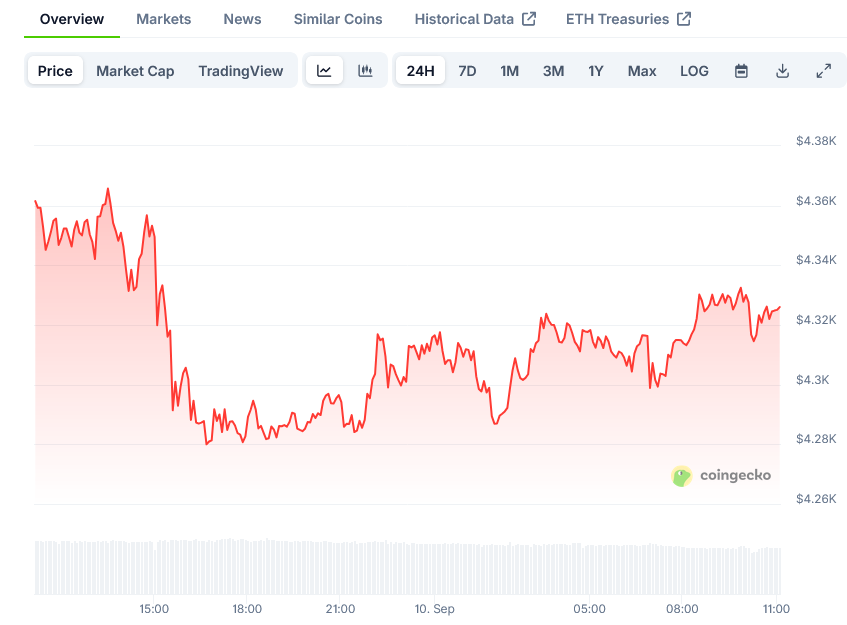Crypto Drama: Ethereum Foundation’s $100 Million Transfer Sparks Debate

TLDR:
- Ethereum Foundation transferred 35,000 ETH (~$96.9 million) to Kraken exchange
- Transfer sparked criticism over lack of transparency
- Foundation says it’s part of normal treasury management for $100M annual budget
- Some community members questioned Foundation’s spending and decision-making
- Foundation claims regulatory issues prevented advance notice of transfer
The Ethereum Foundation, a nonprofit organization supporting Ethereum development, recently transferred 35,000 ETH (worth approximately $96.9 million) to cryptocurrency exchange Kraken.
This move has ignited debate within the crypto community about the Foundation’s transparency and financial practices.
On August 23, 2024, blockchain analytics firm Lookonchain reported the large transfer from an Ethereum Foundation wallet to a Kraken deposit address.
The transaction quickly drew attention on social media, with some community members expressing concern over the lack of prior communication about such a significant movement of funds.
Note that #Ethereum Foundation deposited 35,000 $ETH($94.07M) into #Kraken just now!https://t.co/1DMzORJ9Eg pic.twitter.com/91x2ik2kbH
— Lookonchain (@lookonchain) August 23, 2024
Aya Miyaguchi, Executive Director of the Ethereum Foundation, responded to the criticism on social media platform X (formerly Twitter).
She explained that the transfer was part of routine “treasury management activities” related to the Foundation’s annual budget of around $100 million.
This is part of our treasury management activities. EF has a budget of ~$100m per year, which is largely made up of grants and salaries, and some of the recipients are only able to accept in fiat. This year, there was a long period of time when we were advised not to do any…
— Aya Miyaguchi (ayamiya.eth) (@AyaMiyagotchi) August 24, 2024
Miyaguchi stated that much of this budget goes toward grants and salaries, with some recipients requiring payment in fiat currency rather than cryptocurrency.
“This year, there was a long period of time when we were advised not to do any treasury activities due to the regulatory complications, and we were not able to share the plan in advance,” Miyaguchi wrote.
She added that the transfer to Kraken does not necessarily equate to an immediate sale of the ETH, noting there will be “planned and gradual sales from here on.”
Despite this explanation, some prominent voices in the crypto space remained unsatisfied. Gabriel Shapiro, a crypto attorney and co-founder of Metalex Labs, argued that the Foundation’s actions reflect poorly on Ethereum as an investment. “Enough is enough—this mentality is the biggest constraint on growth of the crypto industry as no one wants to invest in something with un-dependable value-drivers,” Shapiro said.
Marc Zeller, founder of Aave-Chan Initiative, questioned the allocation of the Foundation’s $100 million annual budget. He specifically highlighted concerns about compensation for critical development teams like Geth (Go Ethereum), suggesting they receive “meager pay despite critical work.”
On the other hand, some community members defended the Foundation’s spending. Mudit Gupta, Polygon’s Chief Information Security Officer, argued that the $100 million annual expenditure is justified given the resources required to maintain the Ethereum network. However, he also called for greater transparency and exploration of additional revenue streams.
Former Ethereum Foundation employee Hudson James also supported the organization’s budget, pointing out additional costs such as global trademark protection, server maintenance, and research collaborations. “The ~$100m budget per year is not crazy when you take into account everything the EF does,” James stated.
The Ethereum Foundation currently holds 273,273 ETH worth approximately $752 million, according to blockchain explorer Etherscan. This recent transfer represents about 12.8% of their total ETH holdings.
The post Crypto Drama: Ethereum Foundation’s $100 Million Transfer Sparks Debate appeared first on Blockonomi.








